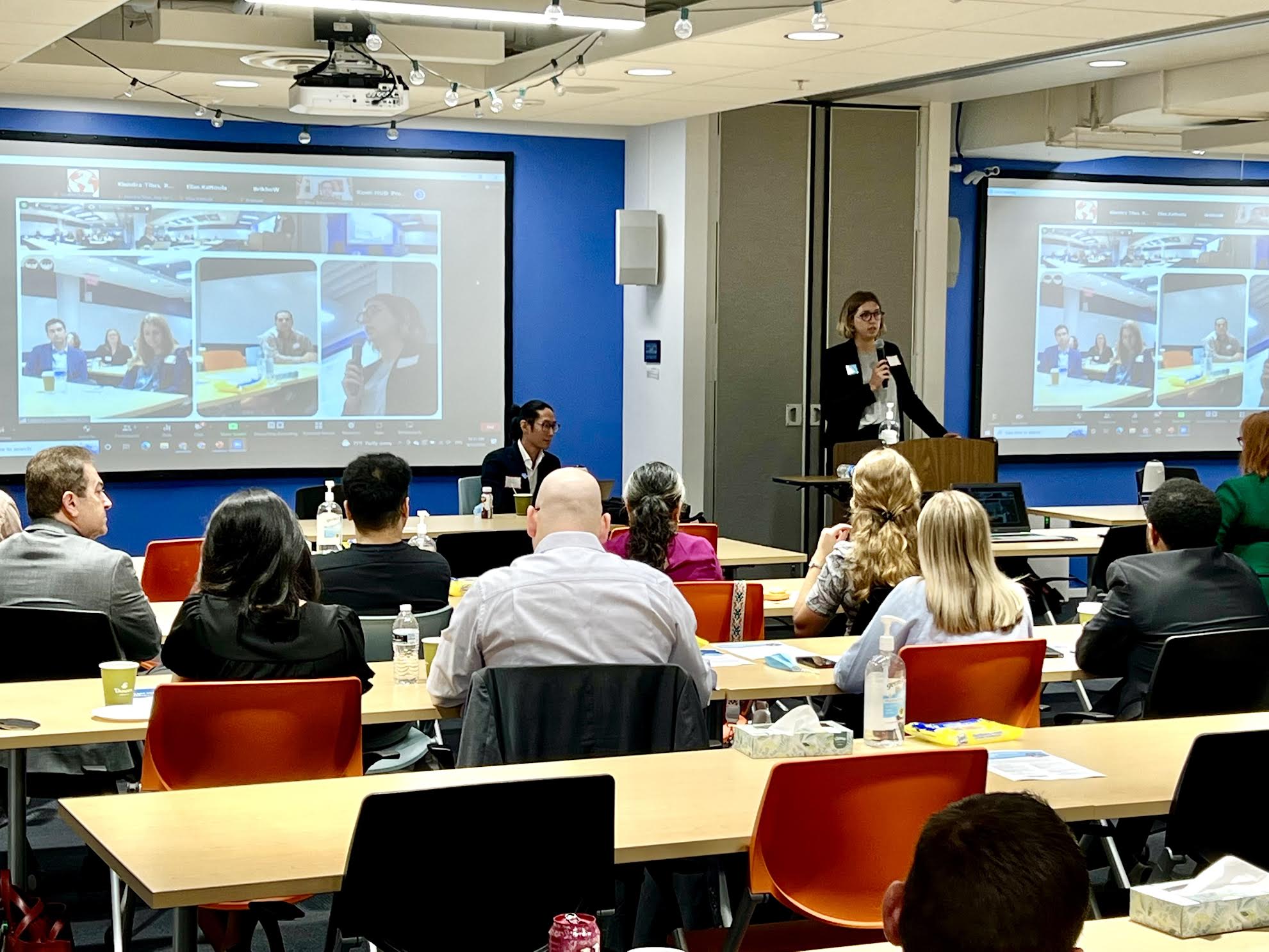A Growing Collaboration in Refugee Resettlement
Relaunching the Southeast Michigan Refugee Resettlement Collaborative to improve long-term integration of refugees and humanitarian arrivals
In June 2021, Global Detroit facilitated the relaunch of the Southeast Michigan Refugee Collaborative (SEMIRC), after the national refugee resettlement ceiling was increased to 125,000 earlier that year by President Biden. In previous years, resettlement agencies and others in resettlement work faced enormous obstacles, including the refugee resettlement ceiling being dropped to an all-time low of just 15,000 refugees nationally. This drastic turnaround between administrations and policies found resettlement agencies scrambling to rehire caseworkers, stretching ecosystem resources and creating widespread need for collaborative solutions and decision making. SEMIRC strives to be part of the long-term solution for these challenges.
Between the Afghan and Ukrainian refugee crises, there have been over 6,000 new arrivals across Michigan since August 2021, and counting.
Shortly after SEMIRC’s relaunch, the Afghan crisis occurred in August 2021, followed by the Russian invasion of Ukraine in February 2022. Between these two crises, there have been over 6,000 new arrivals across Michigan (a nearly 500% increase from 2020 levels), and counting.
SEMIRC coordinates a robust multi-sector support system that improves social, civic and economic inclusion outcomes. The result is a more vibrant and prosperous Southeast Michigan.
Since SEMIRC’s relaunch, early successes have included increased communication across sectors, improved regional crisis preparedness, and an increased spirit of collaboration in traditionally siloed and competitive sector.
SEMIRC coordinates a robust multi-sector support system that improves social, civic and economic inclusion outcomes. The result is a more vibrant and prosperous Southeast Michigan.
Since SEMIRC’s relaunch, early successes have included increased communication across sectors, improved regional crisis preparedness, and an increased spirit of collaboration in traditionally siloed and competitive sector.
SEMIRC’s Vision
For refuge seekers in Southeast Michigan to be welcomed, included, and empowered to establish new lives while retaining their cultural identities.
SEMIRC Advocacy Day

SEMIRC hosted its first Advocacy Day on Thursday, August 25, 2022, to introduce the collaborative to elected officials and staff from the federal, state and local government. This was also the first in-person meeting since the relaunch.
SEMIRC members presented on the state of refugee resettlement in Southeast Michigan, shared the joys and challenges they experience in their work, and made recommendations for how leaders in office can better support the work on the ground. SEMIRC members are looking forward to continuing to build relationships with elected officials on both sides of the aisle.
![SEMIRC members on Advocacy Day.]()

Cultural Orientation Field Trips
In 2023, SEMIRC members began arranging their first joint cultural orientation enrichment activities to facilitate refugee integration. The members wanted to go beyond traditional classroom-based activities for refugees, creating SEMIRC’s first series of on-site Cultural Orientation Field Trips.
These field trips provide refugees firsthand experience with the systems of daily life, including how to use public transportation, public libraries, and the pharmacy. SEMIRC will continue conducting joint Cultural Orientation Field Trips on a monthly basis with generous transportation assistance provided by SEMIRC member, the Arab American Chaldean Council.
Working Together
SEMIRC includes multi-sector membership across four Southeast Michigan counties: Macomb, Oakland, Washtenaw and Wayne. Together, they bridge refugee and mainstream organizations, in an attempt to improve information sharing and reduce duplication of efforts.
Over 150 members, representing 65 nonprofits, government agencies and other critical partners, participated in SEMIRC activities and events in 2022.
The collaborative’s structure consists of monthly meetings with all members and SEMIRC work group meetings, along with special trips, events and webinars.
SEMIRC initiated four work groups in 2022, one each for housing, funding, employment, and cultural orientation.
The collaborative’s approach is considered to be a best practice for connecting partner organizations with statewide refugee resettlement priorities and strategies.
SEMIRC initiated four work groups in 2022, one each for housing, funding, employment, and cultural orientation.
The collaborative’s approach is considered to be a best practice for connecting partner organizations with statewide refugee resettlement priorities and strategies.
Looking Ahead
With a renewed sense of momentum, SEMIRC will address the immediate needs of the refugee community, and the group will also build out a long-term strategy defined by relationship building, collective advocacy, and fundraising.
In 2023, the collaborative is planning to create a refugee advisory board, host a second annual retreat (first was Jan. 2023), and will continue to connect with elected officials on both sides of the aisle.
In 2023, SEMIRC is facilitating five work groups, including the existing cultural orientation, employment and housing groups, and two new groups focusing on legal services and transportation.
In 2023, the collaborative is planning to create a refugee advisory board, host a second annual retreat (first was Jan. 2023), and will continue to connect with elected officials on both sides of the aisle.
In 2023, SEMIRC is facilitating five work groups, including the existing cultural orientation, employment and housing groups, and two new groups focusing on legal services and transportation.
I've been so honored to facilitate SEMIRC since we relaunched in 2021. I've witnessed the growth in cooperation and trust needed within and across sectors in the ecosystem to expand our collective capacity to provide quality support to refugees and other immigrants. I'm excited to leverage the momentum we've built, increase representation for those with lived experience, and see measurable improvements in integration outcomes as we move forward.
Emma Davis, Global Detroit
Emma Davis, Global Detroit
